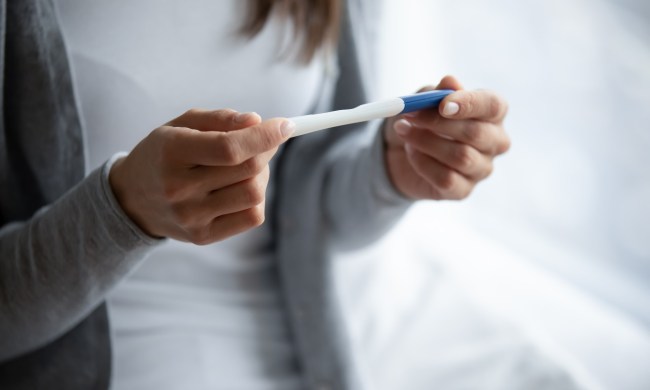
A woman’s body goes through quite a bit during a pregnancy. Many women experience backaches, foot pain, and leg cramps. Then there are those uncomfortable stiff necks from awkward sleeping positions, and let’s not mention the feet. Those tootsies take a beating, especially if you have a job where you are on your feet for a big chunk of the day.
Pregnancy can be a literal pain in the neck … and back, and calves, and hips, and basically any part of your body. So, what are pregnant moms to do? How about treat themselves to a prenatal massage? There are prenatal massage benefits moms-to-be should be in on.
Prenatal massage

Some people swear by massages while others either haven’t had any or are uncomfortable by the thought. Pregnancy though brings on aches and pains you might never have thought you would have to deal with. Prenatal massages are specially tailored to expecting moms.
A prenatal massage addresses areas of the body that are impacted the most by pregnancy, such as the lower and mid-back, legs, and feet. It helps to relax the muscles in those areas and relieve tension. A prenatal massage can also work to reduce swelling. Prenatal massages are typically done with the mom-to-be lying on her side with special pillows. So, don’t worry about having to lay on your growing belly.
The first question that probably pops into your mind when it comes to getting a prenatal massage is if it’s OK to do. Well, we’ve got the answer to that question and more to help you decide if you want to treat yourself to a prenatal massage.
Are prenatal massages safe?
Prenatal massages are generally safe for both you and your baby, as long as you follow a few guidelines. Seeing a massage therapist who is trained in prenatal massage will ensure that your therapist knows exactly what techniques to use on your pregnant body. Discussing your pregnancy and any concerns you have will allow your therapist to treat you in the safest way possible. Most experts also advise that a pregnant woman avoid massages during the first trimester.
“The fear is that in the hands of a massage therapist not trained in prenatal care, the massage would cause stress to the body and harm the baby, as opposed to offering the benefits of de-stressing,” Dendy Engelman, MD, a dermatologist with Manhattan Dermatology and Cosmetic Surgery told The Bump. Some experts also state that massages can also trigger dizziness and exacerbate nausea if done during the first trimester. However, the American Pregnancy Association states that prenatal massage can be done at any stage of pregnancy.
The best thing to do is talk to your obstetrician about whether it’s OK for you to have a prenatal massage. If your doctor gives you the go-ahead, be sure to go to a massage therapist who is specially certified to give prenatal massages.
What’s the difference from regular massage?
Prenatal massages are typically done with the mother-to-be laying on their side, or on their back on an incline, as these positions not only provide maximum comfort but also support the abdomen and ensure optimal blood flow to the uterus and placenta. Bend Total Body Chiropractic also notes that in a prenatal massage, certain pressure points in the ankles and abdomen that could potentially trigger early labor are avoided.
The techniques used during a prenatal massage are also different from a regular massage. Prenatal massage therapists will skip deep tissue pressure in favor of minimal pressure, slowly kneading trouble areas. While the techniques may be different, they’re still effective in relieving stress and providing relaxation.
What are prenatal massage benefits?
Pregnancy can be stressful not only on your body but on your mind. Pregnant women carry a lot of worry and stress as they grow a new life, and a prenatal massage can help alleviate some of that anxiety. A prenatal massage releases hormones like serotonin and dopamine while also helping to reduce inflammation in the body. This not only makes your body feel better but your mind, too.
Many pregnant women deal with swelling, and a prenatal massage can help improve blood and fluid circulation in the body, alleviating some of that swelling. A great prenatal massage can also help reduce joint and muscle pain caused by carrying around the extra weight of a baby and stress. This not only makes your body feel better but can even help you sleep better.
According to What to Expect, the benefits of regular prenatal massage are numerous. Prenatal massages, of course, feel amazing, but they can alleviate common pregnancy issues like:
- Insomnia
- Joint pain
- Neck and back pain
- Leg cramping
- Sciatica
- Swelling in your hands and feet (as long as that swelling isn’t a result of preeclampsia)
- Carpal tunnel pain
- Headaches and sinus congestion
Who shouldn’t get a prenatal massage?
While prenatal massage can truly be an amazing part of a woman’s prenatal care, the American Pregnancy Association warns that pregnant women should consult with their doctor before beginning any prenatal massage therapy if they have recently experienced bleeding, pre-term contractions, or have any of the following conditions:
- High-risk pregnancy
- Pregnancy-induced hypertension
- Preeclampsia
- Previous pre-term labor
- Experiencing severe swelling, high blood pressure, or sudden, severe headaches
- Recently gave birth
Pregnancy is hard on a woman’s body, and as the pregnancy progresses, so do the aches, pains, and stresses that come with it. Regular prenatal massage is a safe and effective method to help reduce pain, swelling, and tension while providing a relaxing experience for the mom-to-be.
Talk to your doctor first before booking a prenatal massage to determine if it’s right for you. Then, make sure you discuss your pregnancy with your certified prenatal massage therapist so they can determine the safest and most effective mode of massage therapy for you and your stage of pregnancy.



